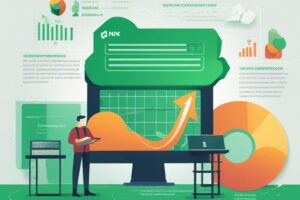You may have heard the term “gig economy” thrown around in recent years, but what exactly does this mean for the future of work? The gig economy, characterized by short-term contracts and freelance work instead of traditional full-time employment, is shaping the way people work and companies operate. In this blog post, we will explore the ins and outs of the gig economy, its impact on industries and individuals, and provide tips on how to navigate this evolving landscape successfully.
The Gig Worker’s Landscape
Profiling the Modern Gig Worker
The modern gig worker is characterized by flexibility, adaptability, and a desire for autonomy in their work. This new breed of worker values the freedom to choose their projects, control their schedule, and work from any location. They are often skilled professionals looking for alternative ways to utilize their expertise while maintaining a healthy work-life balance.
Pros and Cons of Gig Employment
| Pros | Cons |
| Flexibility in work hours | Inconsistent income |
| Opportunity to diversify skills | Lack of job security |
| Freedom to choose projects | No employee benefits |
| Ability to work from anywhere | No paid time off |
For those considering gig employment, it’s vital to weigh the pros and cons of this work arrangement. While the flexibility and autonomy can be appealing, it’s important to also consider the potential drawbacks such as the lack of job security and inconsistent income. Understanding both sides can help individuals make an informed decision about whether gig work is the right fit for them.
For instance
| Pros | Cons |
| Flexibility in work hours | Inconsistent income |
| Opportunity to diversify skills | Lack of job security |
| Freedom to choose projects | No employee benefits |
| Ability to work from anywhere | No paid time off |
The Impact of Technology on Gig Work
Digital Platforms as Marketplaces
On digital platforms, gig workers have access to a wide range of opportunities that match their skill sets and interests. These platforms serve as virtual marketplaces where individuals can offer their services and connect with clients in need of specific tasks to be completed. From freelance writing to graphic design, the digital marketplace has revolutionized how work is sourced and completed.
Automation and The Future of Gig Jobs
With the rise of automation, there are growing concerns about the future of gig jobs. While automation has the potential to streamline processes and enhance productivity, it also poses a threat to certain gig roles that may become obsolete. Gig workers will need to adapt by honing their skills in areas that require a human touch and creativity, as these are less likely to be replaced by machines.
Platforms that successfully balance the integration of automation with the unique capabilities of human workers will thrive in the gig economy. It is crucial for gig workers to stay informed about technological advancements and continuously upskill to remain relevant in a rapidly evolving landscape.
Legal and Policy Considerations
Worker Rights and Protections
Not all gig workers are entitled to the same rights and protections as traditional employees. This has sparked debates and discussions about the need to update labor laws to fit the evolving nature of work in the gig economy.
Regulatory Responses to the Gig Economy
For gig economy platforms to operate ethically and sustainably, there is a pressing need for regulatory responses from governments. These responses should strike a balance between fostering innovation and ensuring fair treatment of workers.
Policy makers are grappling with the challenge of creating regulations that can adapt to the dynamic and fast-paced nature of the gig economy. Issues such as worker classification, benefits entitlement, and employment rights are at the forefront of policy discussions as they seek to create a fair and inclusive framework for all participants in the gig economy.
Strategies for Success in the Gig Economy
Building a Sustainable Gig Career
Unlike traditional full-time employment, succeeding in the gig economy requires a strategic approach to building a sustainable career. Any gig worker looking to thrive in this space must focus on developing a diverse skill set, cultivating a strong personal brand, and nurturing long-term client relationships. By continuously upskilling, adapting to market demands, and delivering high-quality work consistently, gig workers can create a solid foundation for a sustainable career in the gig economy.
Financial Management for Gig Workers
Economy in the Gig Economy, financial management is crucial for gig workers to ensure stability and long-term success. Any gig worker should prioritize tracking expenses, setting aside funds for taxes and emergencies, and establishing a retirement savings plan. By maintaining a detailed record of income and expenses, leveraging financial tools and resources, and seeking guidance from financial professionals when needed, gig workers can effectively manage their finances and secure their financial future.
Plus, having a clear understanding of tax implications, deductible expenses, and financial planning strategies specific to gig work can help gig workers optimize their earnings and protect themselves from financial pitfalls in the unpredictable gig economy landscape.
The Broader Economic and Social Implications
The Gig Economy’s Effect on Traditional Employment
To understand the impact of the gig economy on traditional employment, we need to acknowledge the shift from full-time, secure positions to more flexible, project-based work arrangements. For many workers, the gig economy has provided opportunities for greater autonomy and control over their schedules. However, it has also raised concerns about job stability, benefits, and income security.
Predictions for the Long-Term Future of Work
As we look ahead to the long-term future of work, it is clear that the gig economy will continue to play a significant role in reshaping how we work. With advancements in technology and the increasing focus on remote and flexible work arrangements, we can expect to see further growth in the gig economy. This shift may lead to a more diverse and dynamic labor market, but it also raises questions about worker protections, income inequality, and the overall structure of our economy.
To gain a more comprehensive understanding of the long-term implications of the gig economy, we must consider how this trend intersects with other factors such as automation, global competition, and changing consumer behaviors. These dynamics will likely influence the types of jobs available, the skills required in the workforce, and the overall distribution of wealth in society. As such, policymakers, businesses, and individuals must adapt to this changing landscape to ensure a more sustainable and equitable future of work.
Conclusion
So, as the gig economy continues to grow and evolve, it is evident that the future of work is becoming increasingly dynamic and flexible. Workers are shifting towards more independent and project-based work, while companies are reaping the benefits of a more agile workforce. It is crucial for both individuals and organizations to adapt to this changing landscape by embracing technology, fostering new skills, and establishing strong networks. Navigating the gig economy requires a strategic approach and a willingness to embrace change. By staying informed, proactive, and open-minded, we can successfully navigate the complexities of this new era of work and thrive in a rapidly evolving job market.



